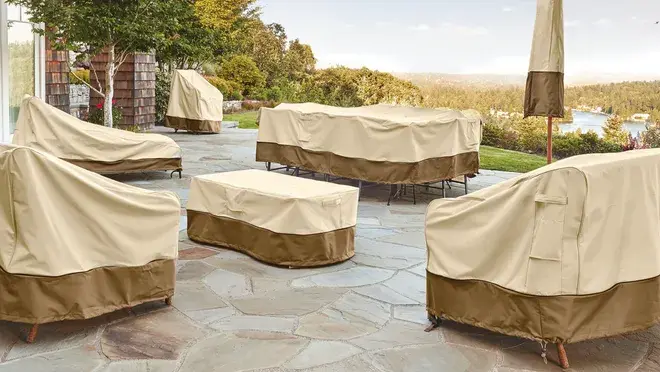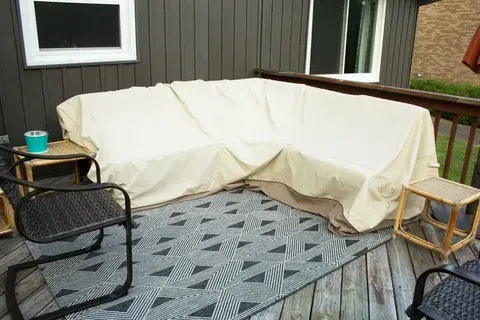Waterproofing in Dubai: A Crucial Investment for Long-Term Property Protection
- Maintenance indubai
- May 8, 2025
- 3 min read
Introduction

Dubai, known for its stunning architecture and rapid urban development, also faces unique environmental challenges. One of the most pressing issues for buildings and infrastructure in this arid region is water damage—an ironic yet serious concern in a desert climate. Despite limited rainfall, factors like humidity, underground water pressure, and artificial irrigation systems make waterproofing in dubai an essential aspect of construction and property maintenance.
Why Waterproofing is Essential in Dubai
Although Dubai receives low annual rainfall, it is prone to sudden and intense downpours, especially during the winter months. These unpredictable rain events, combined with poor drainage in some areas, can lead to severe water intrusion in both residential and commercial buildings.
Additionally, high humidity levels, particularly during summer, can cause condensation within walls and ceilings. Over time, this moisture can compromise structural integrity, promote mold growth, and damage electrical systems.
Common Consequences of Poor Waterproofing
Structural deterioration of concrete and steel
Mold and mildew growth leading to health risks
Wall and ceiling staining or peeling
Damage to insulation and electrical systems
Increased maintenance and repair costs
In a city like Dubai, where property investments are significant, avoiding these issues through proactive waterproofing is not just wise—it’s necessary.
Types of Waterproofing Solutions in Dubai
1. Roof Waterproofing
Roofs in Dubai are directly exposed to harsh sunlight and occasional rainfall. Flat roofs, commonly used in the region, are especially vulnerable to water pooling and leakage. Membrane-based systems, such as bituminous, PVC, or TPO membranes, are widely used for durable and UV-resistant protection.
2. Basement Waterproofing
Underground water pressure and capillary action can lead to basement dampness or flooding. Negative-side and roof waterproofing in dubai positive-side waterproofing systems are employed based on the structure’s condition. Crystalline waterproofing and membrane systems are often used to prevent water ingress through basement walls and floors.
3. Bathroom and Kitchen Waterproofing
Wet areas like bathrooms and kitchens are hotspots for water leakage. Liquid-applied membranes, sealants, and waterproof boards ensure these areas remain dry, safe, and mold-free.
4. Swimming Pool Waterproofing
Due to the high number of residential and commercial swimming pools in Dubai, specialized waterproofing systems such as epoxy coatings and flexible cementitious membranes are essential to prevent leakage and seepage.
5. Balcony and Terrace Waterproofing
Balconies and terraces face weather exposure and need reliable waterproofing layers beneath the tile surface. Acrylic-based coatings and membrane sheets are commonly applied to prevent seepage into living spaces below.
Waterproofing Materials Used in Dubai
Bituminous Membranes: Common for roof and basement applications, known for durability.
Liquid Waterproofing Membranes: Easy to apply and seamless, ideal for bathrooms and terraces.
Cementitious Waterproofing: Simple to mix and apply, great for wet areas and tanks.
Polyurethane Coatings: High flexibility and resistance, suitable for critical applications.
Crystalline Waterproofing: Ideal for concrete structures, penetrates deeply to seal cracks.
Each material has its specific use case depending on budget, exposure, and structural needs.
Regulatory and Environmental Considerations
Dubai Municipality has strict building regulations that mandate proper waterproofing practices. All new construction projects must meet these standards to receive approvals. Additionally, with Dubai’s growing focus on sustainability, eco-friendly waterproofing materials that reduce VOC emissions and energy consumption are increasingly being favored.
Choosing the Right Waterproofing Contractor in Dubai
With many waterproofing service providers available, selecting the right one is crucial. Look for contractors who:
Have certification and compliance with Dubai Municipality standards
Use high-quality, branded materials
Provide warranties for their work
Offer tailored solutions based on site inspections
Have positive reviews and project experience in Dubai
It’s advisable to request detailed quotations and ask for a portfolio of past projects before committing.
Cost of Waterproofing in Dubai
Waterproofing costs vary depending on the area, type of waterproofing system, and materials used. As a rough guide:
Roof waterproofing: AED 20–50 per square meter
Bathroom waterproofing: AED 25–60 per square meter
Basement waterproofing: AED 40–80 per square meter
While initial costs may seem high, the long-term savings in maintenance and repairs make it a smart investment.
Conclusion
Waterproofing in Dubai is not a luxury—it’s a necessity. With the city’s climatic conditions and high-value properties, protecting buildings against water damage is vital for longevity, safety, and comfort. Whether you're a homeowner, builder, or property manager, investing in quality waterproofing today ensures peace of mind and structural integrity for years to come.



Comments